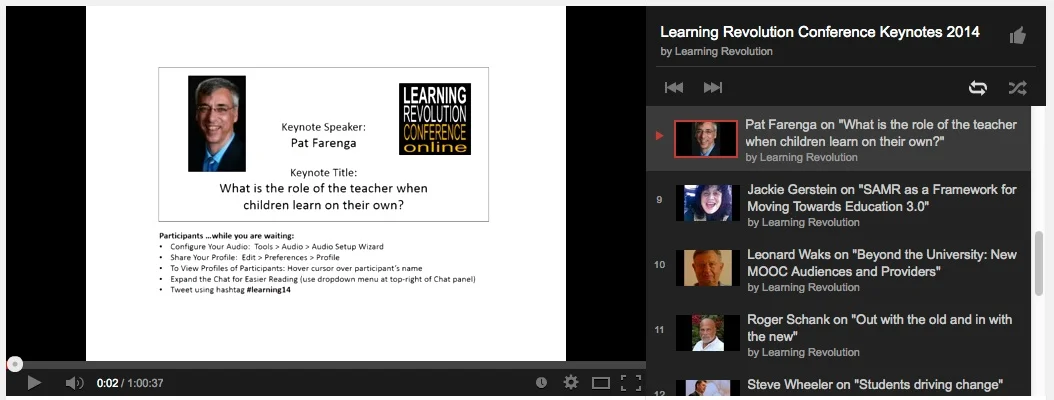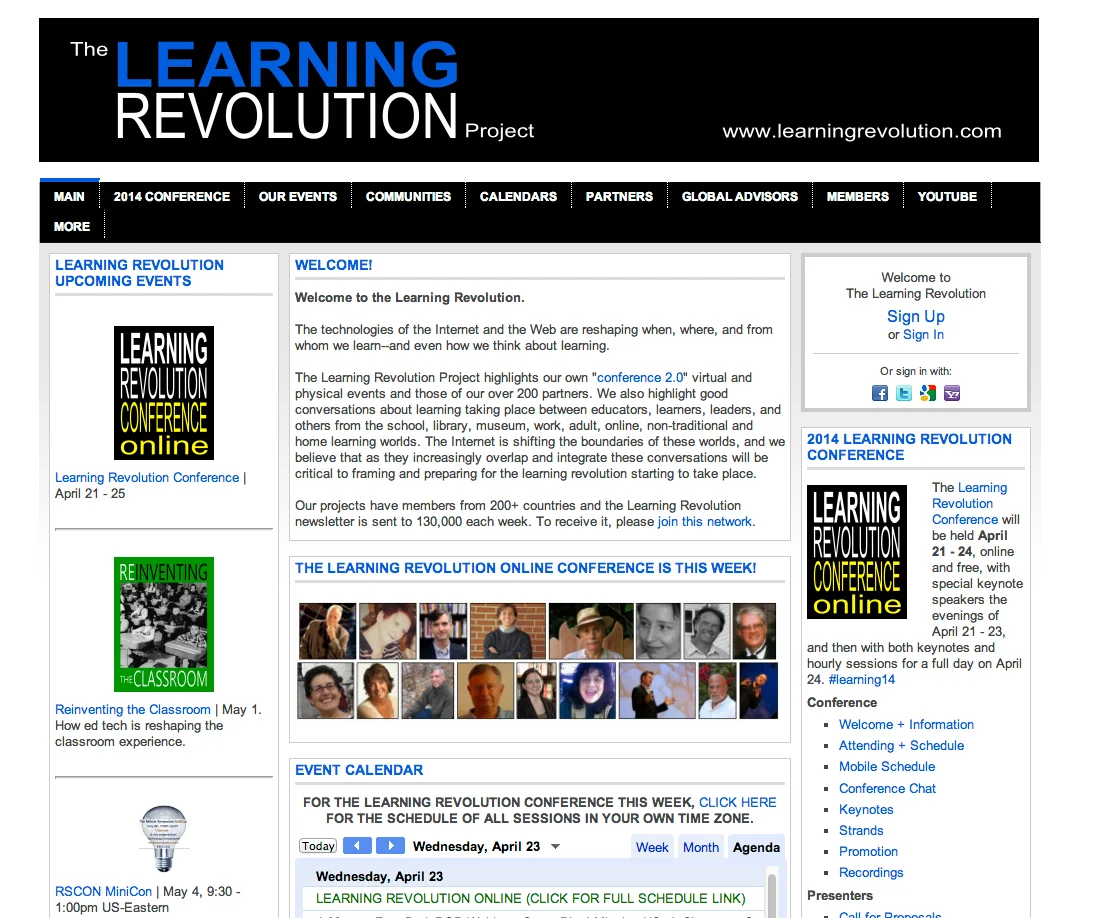"I think children need slowness even more than adults do. It’s in those moments of quiet, of unstructured time, of boredom even, that kids learn how to look into themselves, how to think and be creative, how to socialize. We are doing a great disservice to our children by pushing them so hard to learn things earlier and earlier and by keeping them so busy . . ."
Read MoreAudio, video, blogs, and research about grown homeschoolers is updated and a new page about them is added to the site.
Read MoreThe role of the teacher is different when the child decides when, where, how, and from whom to learn, and the context and purposes of teaching are radically different in this configuration . . .
Read MoreMoms' Night Out is a Hollywood comedy about three homeschooling mothers' misadventures during a night out. But the co-writer and director has some interesting comments about his life as a homeschooled child . . .
Read MoreI’m delivering a keynote at the online Learning Revolution conference early tomorrow morning. It is being recorded so you can listen to it on your own schedule, but if the topic interests you and you’d like to participate with questions and comments, please grab a cup of coffee and join me. I'm speaking about "What is the role of teacher when children do self-directed learning?" . . .
Read MoreEmpowering children to question authority and become active citizens rather than passive students is not high on the agendas of religious and educational institutions, since they consider physical and psychological punishments to be necessary components of their teaching processes. This is why I’m writing about the Protect Children Project—its primary purpose is to end corporal punishment in school—and they have declared May 15, 2014, as Protect Children Day.
Read MoreAn interest-led learning opportunity in Peru for teens and young adults and a new guide for earning college credit for what you know . . .
Read More"Most people, asked whether parental involvement benefits children academically, would say, “of course it does.” But evidence from our research suggests otherwise. In fact, most forms of parental involvement, like observing a child’s class, contacting a school about a child’s behavior, helping to decide a child’s high school courses, or helping a child with homework, do not improve student achievement. In some cases, they actually hinder it . . . "
Read More. . . The main reason I mention James is because of how quickly things are changing for people without college degrees. Google is now not only hiring people like James—they recruit them . . .
Read MoreWant to participate in a research project about unschooling families—particularly their roles in facilitating their children’s learning as well as their roles in greater societal change?
Read MoreThree types of media for you to enjoy: The slides, bibliography, and videos from my recent talk about how parents of preschool-age children can best help them learn; a new video about Holt's Learning All the Time; and a synchronized update of my slides and video, Homeschooling and Unschooling, presented at the Alternatives to Compulsory Schooling conference at Harvard University in April 2013.
Read MoreAfter outlining the general issues the March 7, 2014, Congressional Quarterly Researcher report looks in depth at three key questions:
1. Should governments oversee home schooling more strictly?
2. Is home schooling academically superior to public schooling?
3. Can home schooling help the public school system?
Read More
On a tactical level, it seems futile to think by signing an online petition about the laws of a country where I am not a citizen that I will somehow help shape that country’s laws. However, on a strategic level, I can see how all these actions are important and linked . . .
Read More"The mother who fails at times to be attuned to her child, facilitates her child's healthy development." Don't suffocate your children's development with too much parenting. Here's why you can relax and enjoy being a good-enough parent.
Read MorePresident Obama called for “more challenging curriculums and more demanding parents” in his state of the union address and the NY Times has followed this up with a debate on its pages, Blaming Parents for Poor Schools which, I think, encapsulate the issues of why schools are so resistant to change . . .
Read MoreEight legislators in France have decided homeschooling is dangerous and should be tightly regulated to prevent the mental, ideological, or religious conditioning of children. This is done without much, if any, evidence being produced to support this claim . . .
Read MoreNatural Born Learners: Unschooling and Autonomy in Education, presents the theories, practices, and real-life experiences of self-determined learners in the 21st century.
Read MoreMany American homeschoolers are probably unfamiliar with Dr. Roland Meighan, who died on January 20, 2014, but he was an important and wonderful person whose work should be more widely known. Roland admired the work of John Holt and he reached out to me in the mid 1980s, offering his help to spread the word about alternatives to school . . .
Read MoreIn 1975 The Continuum Concept was published and John Holt was an early, enthusiastic supporter of the book as another reason why parents should trust themselves and their children to learn and grow without constantly referring to experts to be sure they're doing it okay. Today, hunter-gatherer cultures are studied more but, as this exchange shows, what we can learn from them is difficult for many to grasp.
Read MoreA call for homeschoolers, ages 13 to 18, to participate in a research study about their civic and moral development during their high school years.
Read More

















